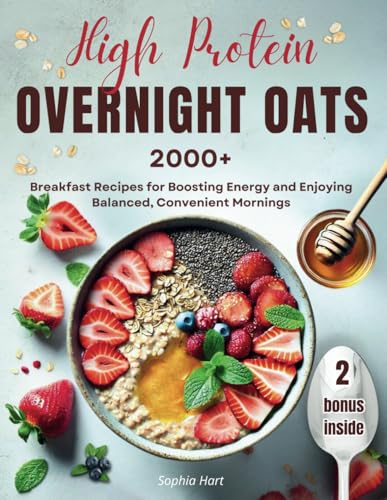
Nutritional Profile of Oats
Oats are widely recognized as a superfood, owing to their rich nutritional profile and numerous health benefits. These whole grains are packed with essential vitamins, minerals, and antioxidants that significantly contribute to overall well-being. Notably, oats are an excellent source of dietary fiber, particularly beta-glucan, which has been shown to support heart health by reducing cholesterol levels and improving blood sugar control.
In terms of nutritional content, a standard serving of oats provides a balanced array of macronutrients. One cup of cooked oats typically contains about 6 grams of protein, making them a good plant-based protein source, especially for individuals seeking to enhance their protein intake without resorting to animal products. Additionally, oats are low in fat and provide complex carbohydrates, which are crucial for sustained energy levels throughout the day.
Oats are also a rich source of several key vitamins and minerals. They contain significant amounts of B vitamins, including thiamine, riboflavin, and vitamin B6, which are vital for energy production and the metabolism of fats, proteins, and carbohydrates. Moreover, oats are high in essential minerals such as magnesium, phosphorus, iron, and zinc, which play critical roles in bone health, immune function, and overall metabolic processes.
Among the various types of oats available—such as rolled oats, steel-cut oats, and instant oats—each variety retains most of its nutritional benefits, although processing methods can influence their fiber content and glycemic index. For instance, steel-cut oats are less processed and therefore maintain a higher fiber content, resulting in a slower digestion rate and greater satiety.
Incorporating oats into the daily diet can be an effective way to ensure adequate intake of these nutrients, thereby promoting long-term health and wellness. Their versatility in cooking makes them an accessible option, suitable for breakfast or addition to other meals.
Oats and Heart Health
Oats are increasingly recognized for their significant contributions to heart health, primarily due to the presence of a unique soluble fiber called beta-glucans. These compounds play a critical role in lowering cholesterol levels, which is crucial for reducing the risk of cardiovascular diseases. When oats are consumed, beta-glucans form a gel-like substance in the gut that binds to cholesterol, facilitating its excretion from the body. This process aids in lowering low-density lipoprotein (LDL) cholesterol—often referred to as “bad” cholesterol—thereby improving overall lipid profiles. According to a study published in the American Journal of Clinical Nutrition, the regular consumption of oats can lower LDL cholesterol levels by up to 7% on average.
Furthermore, oats contribute to the management of triglyceride levels, another important factor in heart health. High triglyceride levels are often associated with an increased risk of heart disease. Incorporating oats into one’s diet not only helps to lower these fats in the bloodstream but can also assist in overall weight management. A healthy weight is directly correlated with reduced blood pressure levels, providing additional heart health benefits. Research indicates that a diet rich in whole grains like oats can lead to a significant drop in systolic and diastolic blood pressure levels.
Consuming oats regularly can therefore be considered an effective strategy for promoting heart health. The American Heart Association supports these findings, highlighting that individuals who integrate whole grains such as oats into their daily diet may experience a reduced risk of developing heart disease. In this way, oats not only serve as a nutritious breakfast option but also as a proactive measure for maintaining cardiovascular wellness. Through various studies and clinical trials, it is evident that the heart health benefits of oats are pronounced, making them an essential component of a balanced diet.
Debunking Oat Myths
Oats are often heralded as a superfood, yet several myths persist regarding their consumption that can lead to misconceptions about their health benefits. One common myth is that oats contribute to weight gain due to their carbohydrate content. However, research indicates that oats are a whole grain rich in fiber, particularly beta-glucan, which promotes satiety and may aid in weight management. Studies show that incorporating oats into a balanced diet can actually support weight loss efforts by regulating appetite and enhancing metabolic health.
Another prevalent myth revolves around oats being unsuitable for those with gluten sensitivities. While it is true that oats themselves are gluten-free, cross-contamination can occur during processing. To address this concern, it is crucial for individuals with celiac disease or non-celiac gluten sensitivity to seek out certified gluten-free oats. When sourced appropriately, oats can be a nutritious addition to a gluten-free diet, offering essential nutrients such as iron, magnesium, and B vitamins without triggering adverse reactions.
The misconception that oats are inherently unhealthy due to their carbohydrate content also deserves clarification. Carbohydrates found in oats are primarily complex carbohydrates, which provide sustained energy and are less likely to spike blood sugar levels compared to simple sugars. Moreover, oats contain important antioxidants that may help reduce inflammation and improve heart health. When integrated into meals thoughtfully, oats can be a beneficial component of a balanced diet.
Addressing these myths about oats is essential for promoting their consumption as part of a healthy lifestyle. Clearing up misunderstandings helps individuals make informed dietary choices, reassuring them that oats offer considerable health benefits while countering any negativity surrounding their use. By embracing oats as a nutritious food source, individuals can effectively enhance their overall diet and wellness.
Incorporating Oats into Your Diet
Integrating oats into your daily meals is an excellent way to enhance your diet with essential nutrients. Oats are versatile and can be incorporated into various dishes, ensuring enjoyment while maximizing their health benefits. One of the most popular ways to start your day is with a wholesome bowl of oatmeal. Prepare it simply by cooking rolled or steel-cut oats in water or milk and adding toppings such as fresh fruits, nuts, seeds, or a drizzle of honey for added flavor. This hearty breakfast option is not only satisfying but also provides a sustained release of energy throughout the morning.
For those who prefer a grab-and-go breakfast, overnight oats serves as an ideal solution. By soaking oats in your choice of milk or yogurt overnight, you create a creamy dish that is ready to eat in the morning. You can personalize overnight oats by including ingredients like chia seeds, nut butter, flavored extracts, and seasonal fruits, keeping convenience at the forefront while reaping the nutritional benefits of oats.
Beyond breakfast, oats can find their way into snacks and savory dishes. Consider preparing oat-based energy bars or granola, which can be a nutritious on-the-go snack. Combine oats with ingredients like nuts, dried fruits, and a binding agent such as honey or nut butter to create delectable treats. Additionally, oats can be incorporated into savory meals by using them as a binder in meatloaf or veggie burgers, or as a topping for casseroles, adding both texture and nutrition.
Furthermore, oatmeal can enhance smoothies, providing creaminess and added fiber without overshadowing the other flavors. By experimenting with these various methods, you can easily make oats a regular part of your diet while enjoying their extensive health benefits.
Science bit
Here are just a sample of the ample studies and research proving the benefits of oats:
Cholesterol Reduction:
- Meta-analysis: Ho, H. V. T., Jovanovski, E., Zurbau, A., Blanco Mejia, S., Sievenpiper, J. L., Jenkins, A. L., & Vuksan, V. (2016). The effect of oat β-glucan on LDL-cholesterol, non-HDL-cholesterol and apoB for CVD risk reduction: a systematic review and meta-analysis of randomised-controlled trials. British Journal of Nutrition, 116(8), 1368-1382.
- Meta-analysis: Whitehead, A., Beck, E. J., Tosh, S., & Wolever, T. M. S. (2014). Cholesterol-lowering effects of oat β-glucan: a meta-analysis of randomized controlled trials. The American Journal of Clinical Nutrition, 100(6), 1413-1421.
- Randomized Controlled Trial: Queenan, K. M., Stewart, M. L., Smith, K. N., Thomas, W., Fulcher, R. G., & Slavin, J. L. (2007). Concentrated oat β-glucan, a fermentable fiber, lowers serum cholesterol in hypercholesterolemic adults in a randomized controlled trial. Nutrition Journal, 6(1), 6.
Blood Sugar Control:
- Systematic Review and Meta-analysis: Chen, V., Zurbau, A., Ahmed, A., Khan, T. A., Au-Yeung, F., Chiavaroli, L., … & Leiter, L. A. (2023). Effect of oats and oat β-glucan on glycemic control in diabetes: a systematic review and meta-analysis of randomized controlled trials. BMJ Open Diabetes Research and Care, 11(1), e003148.
- Meta-analysis: Hou, Q., Li, Y., Li, L., Cheng, G., Sun, X., & Li, S., & Tian, H. (2015). The metabolic effects of oats intake in patients with type 2 diabetes: a systematic review and meta-analysis. Nutrients, 7(12), 10369-10387.
Weight Management:
- Systematic Review: Hashempour, M., Belyani, S., Nojoumi, M., Ahmadi-khorram, M., Hatami, A., & Talebi, S. (2024). The Impact of Oatmeal on Weight Status and Changes: A Systematic Review. Journal of Nutrition, Fasting and Health, 12(1), 1-7.
Avenanthramides (Anti-inflammatory):
- Study on anti-inflammatory and anti-itch activity: Sur, R., Nigam, A., Grote, D., Liebel, F., & Southall, M. D. (2008). Avenanthramides, polyphenols from oats, exhibit anti-inflammatory and anti-itch activity. Archives of Dermatological Research, 300(10), 569-574.
Gut Microbiota:
- In vivo study: Guzowska, M., Dziendzikowska, K., Kopiasz, Ł., Gajewska, M., Wilczak, J., Harasym, J., … & Gromadzka-Ostrowska, J. (2024). Oat Beta-Glucans Modulate the Gut Microbiome, Barrier Function, and Immune Responses in an In Vivo Model of Early-Stage Colorectal Cancer. International Journal of Molecular Sciences, 25(24), 13586.
- Integrative Review: Fabiano, G., Shinn, L., & Antunes, A. (2023). Relationship between Oat Consumption, Gut Microbiota Modulation, and Short-Chain Fatty Acid Synthesis: An Integrative Review. Nutrients, 15(16), 3534.
- In vitro study: Kristek, A., Wiese, M., Heuer, P., Kosik, O., Schär, M. Y., Soycan, G., … & Spencer, J. P. E. (2019). Oat bran, but not its isolated bioactive β-glucans or polyphenols, have a bifidogenic effect in an in vitro fermentation model of the gut microbiota. British Journal of Nutrition, 121(5), 549-559.
Oats and Asthma Prevention in Children:
- Cohort Study: Virtanen, S. M., Kaila, M., Pekkanen, J., Kenward, M. G., Uusitalo, U., Pietinen, P., … & Knip, M. (2010). Early introduction of oats associated with decreased risk of persistent asthma and early introduction of fish with decreased risk of allergic rhinitis. British Journal of Nutrition, 103(2), 266-273.



